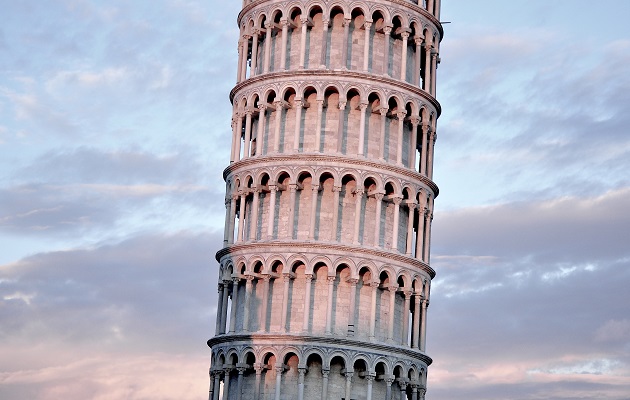Evangelical Christians should “encourage public debate” about a European refoundation
The increase in diplomatic tensions between France and Italy reopen the debate about the future of the European Union. “Our ties are found in Christ and are so much stronger than these political games”, says the Italian Evangelical Alliance.
ROME · 11 JULY 2018 · 12:34 CET

The border between France and Italy remains closed since 2015, resulting in the Italian locality of Ventimiglia becoming a settlement for migrants and refugees, unable to advance further.
The relationship between these countries has deteriorated due to the opposing viewpoints concerning political migrants in Europe, reaching breaking point over the ‘Aquarius’ case. The 629 people on board the boat run by French NGO SOS Mediterranée was unable to dock in Italy after the refusal given by Matteo Salvini, Minister of the Interior. The Spanish government finally offered the port of Valencia and special 30 day residence permits were given to the migrants. The President of France, Emmanuel Macron, accused the Italian executive of cynicism and irresponsibility.
Since then the war of words has been a constant exchange of heated statements and is evidence of increasing distancing between these countries. Not long after Macron’s words, Salvini demanded an apology from the French president and assured that “Italy is the second country in the world for migrants” and that they “don’t need lessons from anyone on generosity and solidarity.”
“Political manoeuvres. It is easy to blame others rather than facing reality responsibly”, considers the Vice President of the Italian Evangelical Alliance, Leonardo de Chirico. “The whole problem of migration has been politicalised. Everything that this said is filtered through political lenses and party lines, rather than being evaluated with reliable data and a Christian worldview. It is now hard to talk about this topic reasonably, and this is not helpful. On the one hand they are calling to Europe for help, while on the other there now doesn’t exist an European vision”, he remarks.
AN ANTICIPATED CRISIS?
The United Kingdom leaving the European Union, in part due to the migration question and political borders, as well as the recent disagreement between Angela Merkel, the Chancellor of Germany, and her Minister of the Interior, Horst Seehofer, who threatened to resign if the management of migration movements was not addressed, are two of various examples that show the growing need of dialogue about the future of the continent.
The case of France and Italy is no different. The disagreement between the two executives reflects the tensions and internal conflicts within the European Union. On the one hand, Macron represents a pro-European and neoliberal attitude, although his proposals on migration have not triumphed. In the wake of the ‘Aquarius’ episode, he showed to be a supporter of sanctioning those countries who refused to accept the migrants. On the other hand, Italy, with the new anti-establishment Five Star Movement and the xenophobe Liga, the picture of Euroscepticism and with an electoral mortgage of driving out 500,000 people from the country, is partisan to localised migration management in home countries, mainly in the south of Libya, with the opening of centres there.
“The overriding question that no one, including evangelical Christians, is asking today is what type of Europe do we want to be. Exclusively a free trade zone? And therefore each country deals with immigration by themselves. Or do we want Europe to be a federation of states? If this is it, immigration becomes a state problem, something that we deal with together”, states Chirico, reaffirming the need of a discussion about the future of the continent.
“Politicians play with Europe. Sometimes they are favourable to the EU and then other times they use nationalist grievances against it. I think that evangelicals in Europe need to encourage a public debate about the future of the continent. This is also key for the migration question,” he reiterates.
AN EXAMPLE OF UNITY
The National Council of Evangelicals in France (CNEF) confirm that they maintain “good relationships with evangelicals in Italy, especially through the European Evangelical Alliance and joint projects such as the worldwide Week of Prayer in January”.
“Our ties are found in Christ and are much stronger than these political games”, Chirico defends, after the rising tension between the governments of these two countries.
The Italian Evangelical Alliance also calls for greater participation from the evangelical public. “Evangelicals tend to interact with governments according to previously determined political tendencies, rather than from a Christian perspective”, says Chirico. He also explains that “they are still working to construct an evangelical Christian approach towards both the public life and government”.
This is challenging when considering how neither the Five Star Movement nor the Lega have shown any interest in minority religions, according to Chirico . He explains that this is due to being new in politics and the tradition of “adopting the Catholic culture as a strong identity mark against minorities”.
“With the new government there has been a significant change in political representation and therefore the challenge that we have before us is to build a respectful relationship”, he points out.
Published in: Evangelical Focus - europe - Evangelical Christians should “encourage public debate” about a European refoundation
